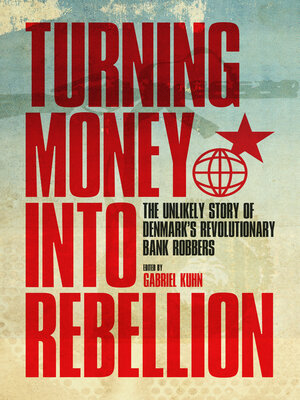Turning Money into Rebellion
ebook ∣ The Unlikely Story of Denmark's Revolutionary Bank Robbers · Kerseplebedeb
By Gabriel Kuhn

Sign up to save your library
With an OverDrive account, you can save your favorite libraries for at-a-glance information about availability. Find out more about OverDrive accounts.
Find this title in Libby, the library reading app by OverDrive.



Search for a digital library with this title
Title found at these libraries:
| Library Name | Distance |
|---|---|
| Loading... |
Blekingegade is a quiet Copenhagen street. It is also where, in May 1989, the police discovered an apartment that had served Denmark's most notorious twentieth-century bank robbers as a hideaway for years. The Blekingegade Group members belonged to a communist organization and lived modest lives in the Danish capital. Over a period of almost two decades, they sent millions of dollars acquired in spectacular heists to Third World liberation movements, in particular the Popular Front for the Liberation of Palestine (PFLP). In May 1991, seven of them were convicted and went to prison.
The story of the Blekingegade Group is one of the most puzzling and captivating chapters from the European anti-imperialist milieu of the 1970s and '80s. Turning Money into Rebellion: The Unlikely Story of Denmark's Revolutionary Bank Robbers is the first-ever account of the story in English, covering a fascinating journey from anti-war demonstrations in the late 1960s via travels to Middle Eastern capitals and African refugee camps to the group's fateful last robbery that earned them a record haul and left a police officer dead.
The book includes historical documents, illustrations, and an exclusive interview with Torkil Lauesen and Jan Weimann, two of the group's longest-standing members. It is a compelling tale of turning radical theory into action and concerns analysis and strategy as much as morality and political practice. Perhaps most importantly, it revolves around the cardinal question of revolutionary politics: What to do, and how to do it?







